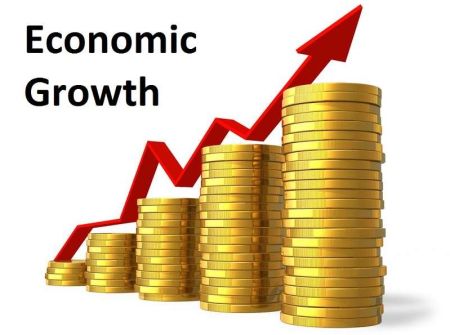JP Morgan to Cut 8,000 Jobs
 JP Morgan announced it will cut 8,000 jobs in its mortgage and retail banking sections as those businesses continue to shrink. The bank had previously announced about half of those cuts, but said it was eliminating more positions to save costs. Last year, JP Morgan laid off more than 16,500 bankers in those areas. It has been hit particularly hard by a decline in mortgage refinancing due to rising interest rates.
JP Morgan announced it will cut 8,000 jobs in its mortgage and retail banking sections as those businesses continue to shrink. The bank had previously announced about half of those cuts, but said it was eliminating more positions to save costs. Last year, JP Morgan laid off more than 16,500 bankers in those areas. It has been hit particularly hard by a decline in mortgage refinancing due to rising interest rates. Interest rates have been rising in the US as the Federal Reserve begins to slow down its stimulus efforts. The cuts will be divided, with about 6,000 bankers being laid off in its mortgage division. Another 2,000 positions will be eliminated in its retail division, as the bank switches to more automated machines. JP Morgan said it also planned to hire some 3,000 bankers, bringing the firm's total employment to about 260,000 by the end of 2014.
The bank reported profits of $17.9 bn in 2013, down from $21.3 bn a year earlier. Profits have been hurt by a wave of settlements over mismanagement relating to the housing crisis, the "London Whale" trading loss and manipulation of the Libor benchmark interest rate, among others. The cuts were announced as part of JP Morgan's annual investor day, which continues throughout the day on Tuesday, 25th August.
German Consumer Confidence Seen Hitting 7-year High
German consumer confidence is set to climb to a seven-year high next month amid low interest rates, a solid job market and expectations of rising wages, a survey released on Wednesday, 26th February showed. Confidence among households in Europe’s biggest economy will rise to a higher-than-forecast 8.5 points in March from an upwardly revised January reading of 8.3 points, the Nuremberg-based GfK research group said in releasing its forward-looking indicator.
Analysts had expected the GfK indicator would hold steady at its previously estimated reading for February of 8.2 points. “This positive development provides a good foundation for private consumption continuing to play a key role in economic growth this year,” the GfK said. Based on a survey of about 2,000 households, the March reading represents the indicator’s highest level since January 2007 with record low interest rates reducing the incentive to save. The gain in the indicator came despite a slight dip in the households’ expectations about Germany’s economic prospects and consumers’ propensity to spend coming in unchanged. The index gauging wage expectations climbed 2.4 points to a more than 13-year high of 48.6 points following a series of key pay settlements.
 Bitcoin World in Turmoil as Exchange Shuts Down After Theft
Bitcoin World in Turmoil as Exchange Shuts Down After Theft Bitcoin investors and enthusiasts were in turmoil on Tuesday, 25th February after one of the largest exchanges of the virtual currency ceased operations amid reports of a massive theft. Mt Gox, a Tokyo-based website that acted as a kind of Bitcoin bank was unreachable on Tuesday following a leaked memo. It allowed holders to store their virtual currency there or exchange it for dollars, yen or other hard currency and had conducted hundreds of millions of dollars in transactions since its 2010 founding.
The memo, which purported to come from Mt Gox management detailed how the site may have lost some 744,000 Bitcoins to theft over several years and was on the verge of bankruptcy. The stolen Bitcoins amount to about 6 per cent of all the Bitcoins in circulation. At peak value of $1,200 per Bitcoin, the lost currency represents over $893 million. But the value of Bitcoin has fallen sharply in recent months, including a more than 10 per cent drop on the news of Mt Gox’s trouble, and was trading at less than $500 on Tuesday.
“In light of recent news reports and the potential repercussions on Mt Gox’s operations and the market, a decision was taken to close all transactions for the time being in order to protect the site and our users,” a notice on the Mt Gox website read.“We will be closely monitoring the situation and will react accordingly.” Other Bitcoin exchanges sought to distance themselves from the website troubles issuing a joint statement that called Mt Gox’s action “a tragic violation of the trust of users,” and assuring that other companies “would continue to build the future of money by making Bitcoin more secure and easy to use for consumers and merchants.”
Gold Market Breaches 'Covered Up'
 Dubai's biggest gold refiner committed serious breaches of the rules designed to stop gold mined in conflict zones from entering the global supply chain, a whistleblower has revealed. Amjad Rihan led an Ernst & Young team that audited Kaloti and found it was failing to carry out the proper checks. But after he told the Dubai regulator, it changed its audit procedures.
Dubai's biggest gold refiner committed serious breaches of the rules designed to stop gold mined in conflict zones from entering the global supply chain, a whistleblower has revealed. Amjad Rihan led an Ernst & Young team that audited Kaloti and found it was failing to carry out the proper checks. But after he told the Dubai regulator, it changed its audit procedures. He said that allowed details of the most serious findings to be covered up, with Ernst & Young turning a blind eye.
The regulator, Ernst & Young and Kaloti all say they acted properly. Mr Rihan told BBC Newsnight: "The risk of conflict gold entering Dubai and entering the global supply chain is extremely high." The audit team, which visited Kaloti last year, alerted the Dubai Multi Commodities Centre (DMCC) and also urged superiors at Ernst & Young to notify other regulators and the gold-buying public.
In May the DMCC's guidance required the audit team's initial findings to be made public but by November that requirement had disappeared. Angry with the regulator and his firm, Mr Rihan decided to resign and blow the whistle, taking his story to the campaigning group Global Witness, which passed key documents to Newsnight.
Conflict-free gold is described as gold that has not caused, supported or benefited unlawful armed conflict during its production. Dubai is an important global gold hub, with more than one-fifth of the world's trade in physical gold taking place there. As well as being used for jewellery or gold bars, about 300 tonnes of gold a year is used for components in electronic devices, such as computer leads and smartphones.
 UK Proposes Tougher Rules for Non-EU Banks
UK Proposes Tougher Rules for Non-EU Banks The Bank of England has set out tougher proposals for non-EU banks to try to prevent a repeat of the 2008 financial crisis. Non-EU banks wanting to take deposits would have to set up subsidiaries in the UK and face stricter rules. These would then be directly regulated by the UK's Prudential Regulatory Authority (PRA).
Those not taking deposits from the public would be classified as branches, and benefit from lighter touch rules. The Bank is hoping many Chinese banks will use the branch system and that the City of London will become a major hub for trading the yuan currency outside China. The Bank put the proposals out to public consultation on Wednesday, 29th February. Andrew Bailey, deputy governor of the PRA, told a programme: "We are much more comfortable if branches from overseas are conducting wholesale business, that is things like trade finance.
"We are much less comfortable if they are taking deposits from the retail market in the UK and that is born out of difficult experiences we had in the height of the crisis." Britain had to compensate deposit holders in the UK when they lost money deposited in Iceland's banking system, which collapsed in 2008 at the height of the financial crisis. The UK government is suing Iceland to get the money back.
Ukrainian Currency Hits 10-year Low
 Ukraine's currency, the hryvnia, has fallen to a new low of 10 years to the US dollar. The currency's decline reflects political upheavals and longer-term persistent economic weakness. But it is also likely to aggravate those underlying problems and adds to Ukraine's need for international financial assistance. The pressure is on the West and the International Monetary Fund (IMF) to help, as Russia seems unlikely to.
Ukraine's currency, the hryvnia, has fallen to a new low of 10 years to the US dollar. The currency's decline reflects political upheavals and longer-term persistent economic weakness. But it is also likely to aggravate those underlying problems and adds to Ukraine's need for international financial assistance. The pressure is on the West and the International Monetary Fund (IMF) to help, as Russia seems unlikely to. Even before the recent political upheavals, Ukraine's economic performance was dismal. The economy is still smaller than it was in 1992, in the early days of post-Soviet independence.
But the political crisis has aggravated the country's long standing problems and the falling value of the currency is one of the consequences.
And it has been a sharp fall, 18% so far this month alone. The central bank has been making some efforts to stem the decline, by using its foreign exchange reserves to buy hryvnia.
At best, it has slowed the loss of value, but at the expense of running those reserves down to dangerously low levels.
One rough and ready rule sometimes used is that a country should have enough reserves to pay for three months of imports.
Capital Economics, a consultancy in London, reckons Ukraine is now down to less than two months' worth, which can only magnify the incentive for investors and savers to get their money out.





















